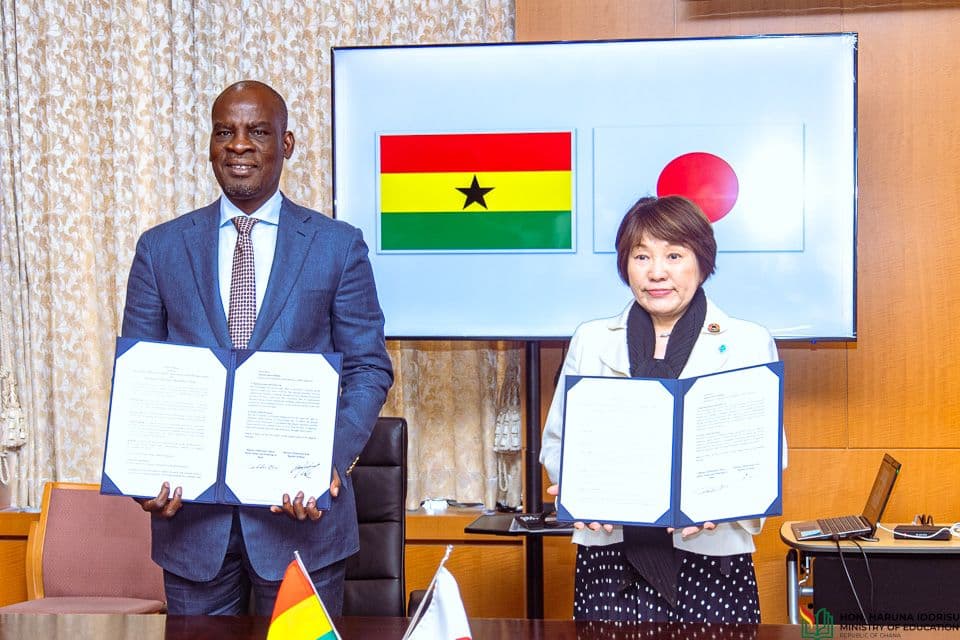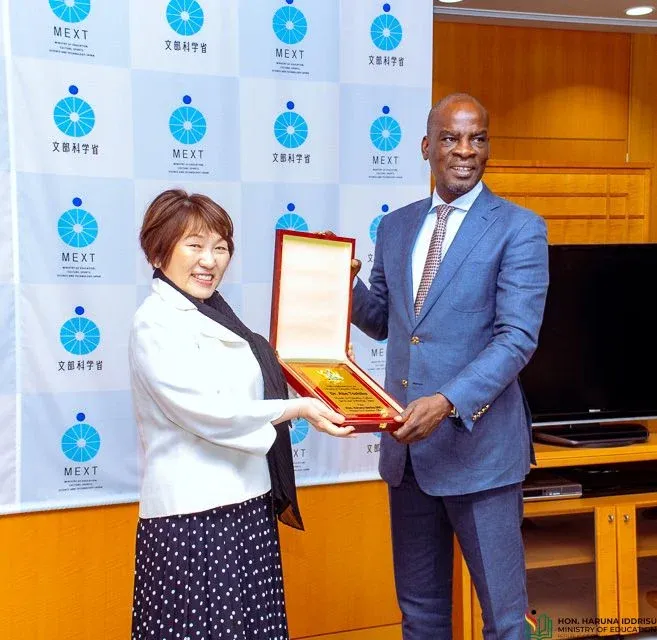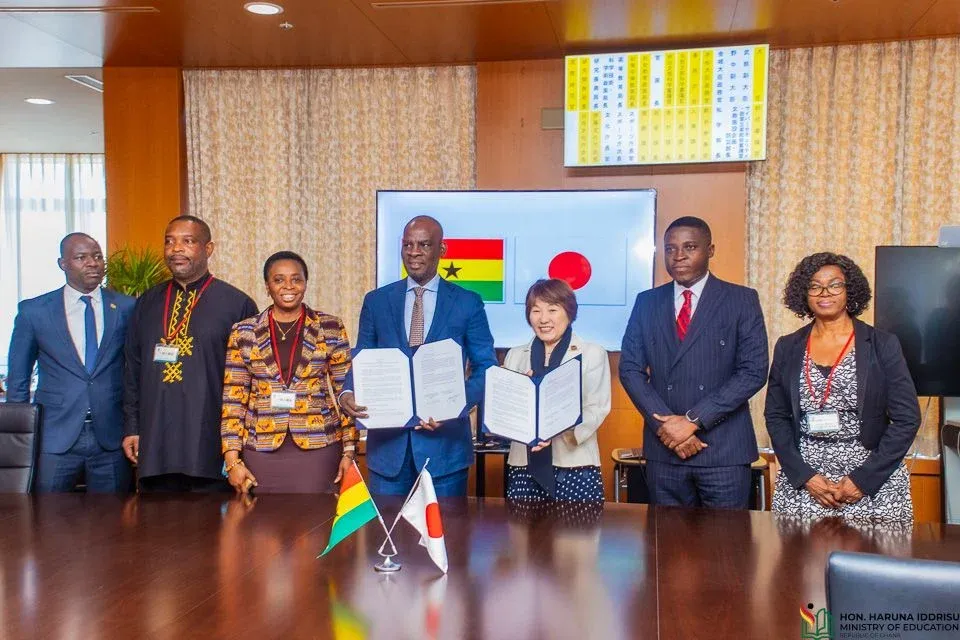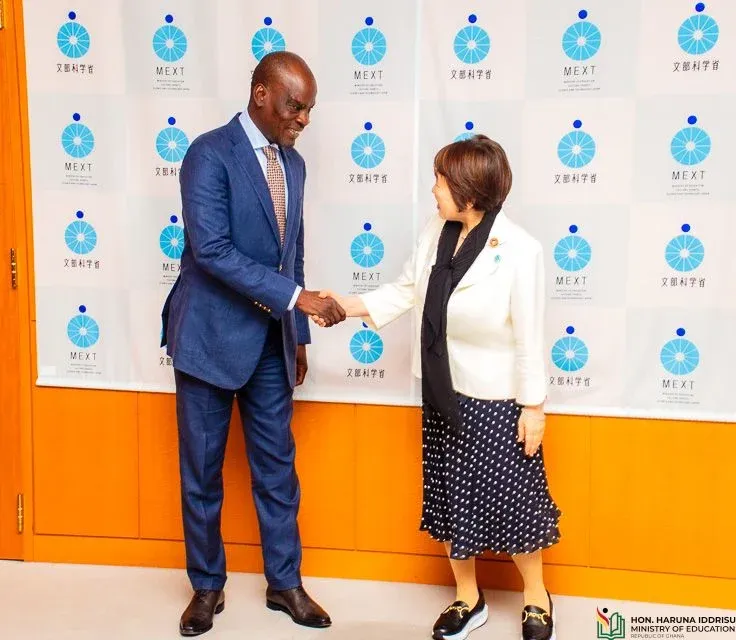Ghana and Japan Forge Strategic Education Alliance to Advance Sustainability and Digital Innovation

Ghana and Japan have ushered in a new chapter of educational cooperation focused on sustainable development, digital innovation, and inclusive learning.

A landmark bilateral agreement was officially signed in Tokyo between Ghana’s Minister for Education, Haruna Iddrisu, and Japan’s Minister of Education, Culture, Sports, Science and Technology (MEXT), ABE Toshiko. The agreement sets forth a shared commitment to transforming Ghana’s education system by incorporating the core principles of Education for Sustainable Development (ESD), advancing digital skills, and expanding access to science, technology, engineering, and mathematics (STEM) education.

Key priorities under the partnership include:
- Strengthening teacher training and co-developing curricula to enhance institutional capacity
- Promoting green skills development in Technical and Vocational Education and Training (TVET)
- Scaling up STEM education and digital innovation to foster environmental awareness and problem-solving abilities
- Facilitating student exchange programs and joint research initiatives at the tertiary level to address global sustainability challenges
- Embedding ESD principles in schools and communities to nurture globally responsible citizens
- Rolling out comprehensive coding programs in Ghanaian schools to prepare students for the future job market

Minister Iddrisu praised Japan’s enduring support for Ghana’s educational development, calling the partnership “strategic, timely, and transformative.” He also recognized Japan’s leadership in ESD through efforts like the UNESCO ESD Centre in Okayama and hosting global ESD conferences. “This collaboration reflects our shared belief that education is the foundation of peaceful, resilient, and sustainable societies,” he stated, adding that Japan’s community-based learning and environmental practices offer valuable insights for Ghana’s reforms.
This agreement supports Ghana’s Education Strategic Plan (ESP 2018–2030) and the broader national goal of evolving into a knowledge-based economy. It also strengthens Ghana’s commitment to achieving the United Nations Sustainable Development Goal 4: ensuring inclusive and equitable quality education for all.
Japan’s continued contributions through the Japan International Cooperation Agency (JICA), the Sakura Science Exchange Program, and teacher development initiatives remain instrumental in enhancing Ghana’s education system. As the partnership deepens, it is expected to yield long-term benefits for both countries and support global efforts to build fairer, more sustainable education systems.





